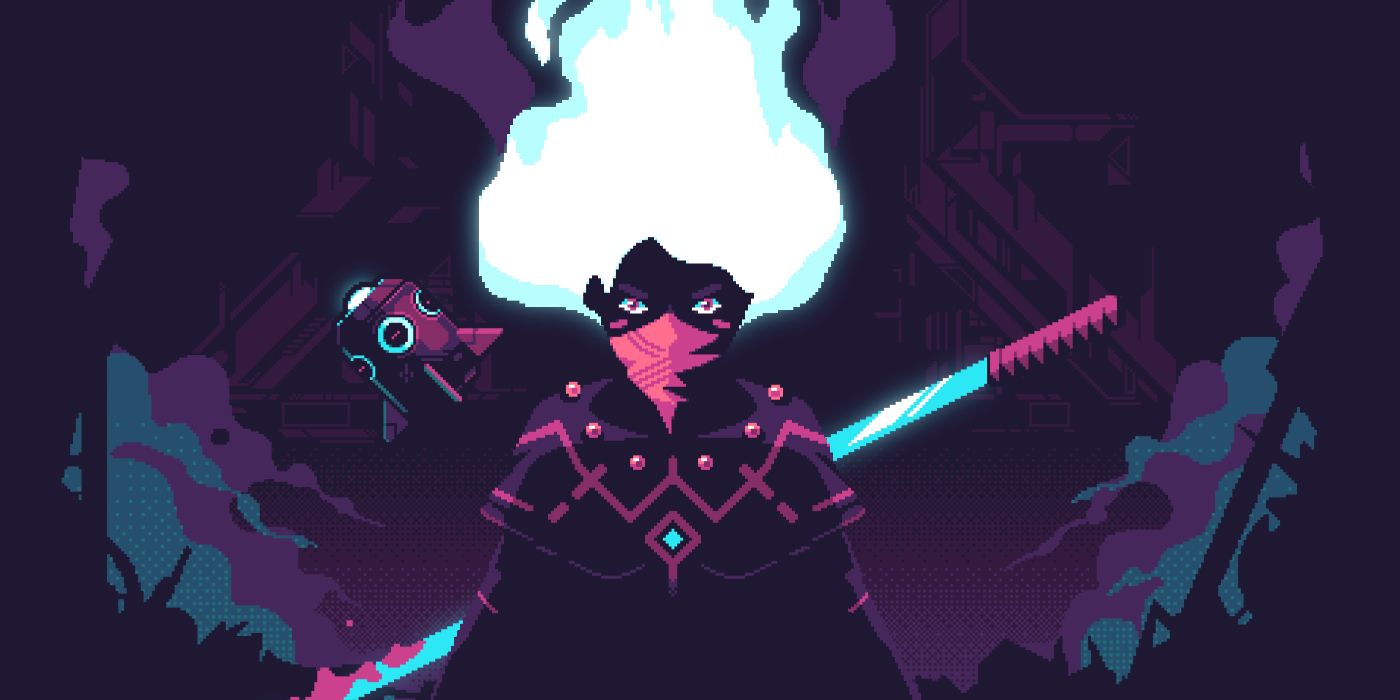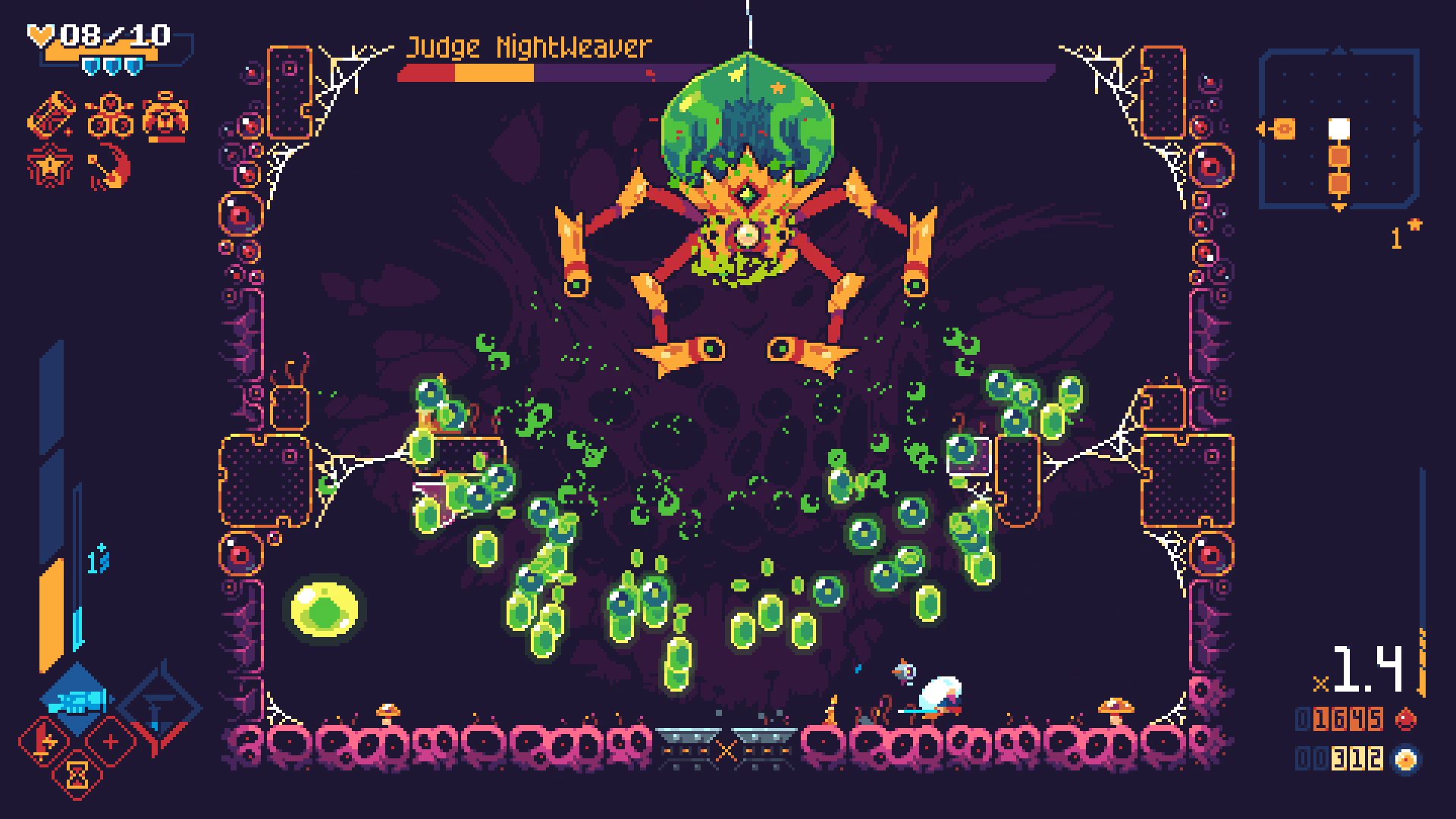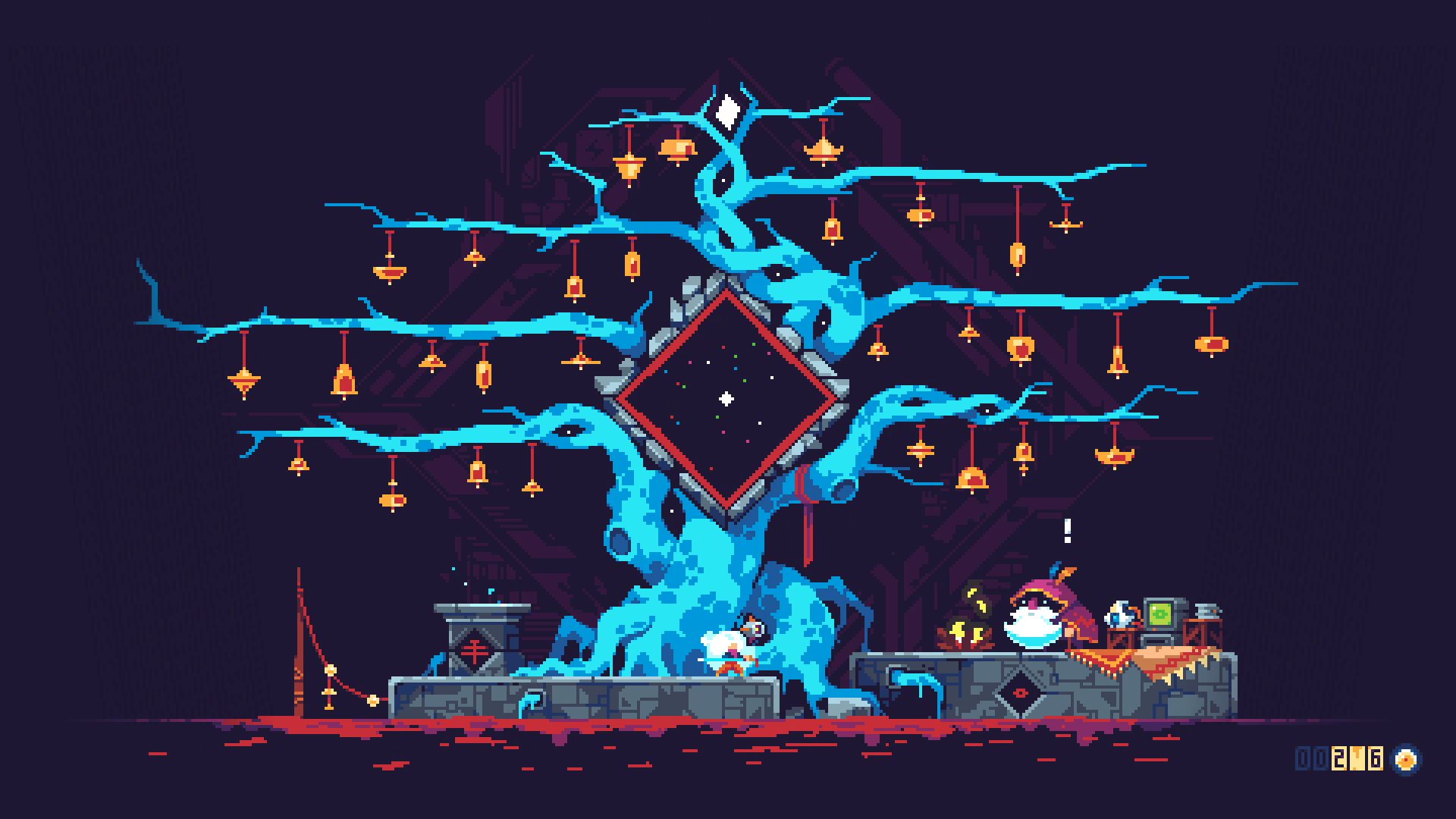Even with the impending release of Sony and Microsoft's next-generation consoles, complete with launch titles like Assassin's Creed Valhalla and Spider-Man: Miles Morales, indie games continue to thrive. There are programs and tutorials online that make it easier than ever to become an indie developer, and contests like game jams—during which participants have limited time to create games from scratch— are frequent sources of creativity. Thomas Altenburger and Florian Hurtaut met first at Global Game Jam 2012 and went on to create Flying Oak Games, and the studio's latest title ScourgeBringer releases this week.
The French developers have been working together for nearly seven years after running into each other at multiple game jams, commiserating over a love of pizza and indie titles like Hopoo Games' Risk of Rain, and taking a "leap of faith" with their first game, NeuroVoider. That four-player, roguelike twin-stick shooter released in 2016 to positive reviews, but Altenburger said it had flaws the duo hope to address in their next title. Game Rant spoke with Altenburger about ScourgeBringer's development and Flying Oak Games' philosophy on designing roguelikes. An Early Access copy of the game was provided to prepare for the interview.
While NeuroVoider and ScourgeBringer are action-focused games "with a lot of flow," some early titles on Flying Oak's website are very different. The "experimental" Hoy was a dancing-focused Kinect game developed during a game jam that had a Microsoft publishing deal before it "kind of decided to forget about the Kinect" prior to the Xbox One's release. The mobile arcade-style Dead End, meanwhile, was developed by Altenburger and another friend as a test to see what they might excel in while Hurtaut was finishing his education.
"We found we were more into making games than actually publishing them," Altenburger said. "That's why we mostly work with publishers."
In terms of starting a new game, Altenburger said he and Hurtaut begin by making two lists: Things they would like to try, and things they don't want to try; typically because of a dislike or lack of familiarity with a genre. Coming off of NeuroVoider, Altenburger said one major goal was to focus on designing better boss fights, as well as better integrating narrative elements to avoid having a "paper story" that turns off some players. ScourgeBringer began as a purely action-oriented roguelike in its prototyping phase, but that felt like "running in circles," as the execution was similar to previous ventures.
The solution was randomly selecting a design element from the dislike list to break their routine. "We love to work with constraints," Altenburger said, and in this case the constraints included adding platforming elements. The duo originally hoped to avoid this because they understood the behind-the-scenes controls, physics, and game feel that went into perfecting a seemingly "simple" genre, and felt they could not execute on them. However, after about a week, "We felt it could be a thing ... and a few weeks later, ScourgeBringer was a project."
Flying Oak Games is very gameplay-focused, according to ScourgeBringer's director. The duo spent almost a year of its two-and-a-half year dev cycle refining and polishing small details in a combat system that emphasizes players flying about the screen to keep a combo going against randomly-generated enemies. Its main character, Kyrha, uses a sword and gun that charges as she attacks, similar to Heart Machine's Hyper Light Drifter - though Altenburger insists neither he nor Hurtaut have played that game, despite it frequently being brought up in comparisons by members of the community. The system was designed to "build symmetries with weapons," encouraging players to use both for certain situations.
This focus on tight gameplay centers its roguelike elements around growing more complex as the player wishes rather than simply powering up the player's avatar like in "grindy" games such as Rogue Legacy, according t0 Altenburger. He compares their design philosophy to making a roguelike version of action games such as Devil May Cry. Players can access permanent upgrades via a skill tree after each death, but most of what this offers is new moves to traverse and combat enemies with specific weaknesses, or ways to extend one's combo meter. A longer combo earns more blood, ScourgeBringer's currency, which can be used during runs on upgrades such as minor power boosts or a different type of gun.
"We wanted to design something that follows the player's progression in knowing the game and earning more skills," Altenburger said. "[New moves] don't necessarily make you stronger, but they offer you more options."
The use of blood as currency is a thematic element that helps tie into the other major design facets Flying Oak Games wanted to address following NeuroVoider. Various bosses that players encounter drop a unique kind of blood that act as "skill points" for the tree, and using it as currency is meant to integrate ScourgeBringer's narrative elements into its gameplay similar to Enter the Gungeon's bullet casings. Players can also grant Kyrha one of three "blessings" from blood altars in each of the game's five primary areas, and there are about 30 options to choose from that create "quite a lot of combinations" to diversify runs.
All together, these elements are angling to keep the game fresh over frequent deaths and replays, as players are likely to die a lot given ScourgeBringer's frenetic, high-risk/high-reward combat style even in comparison to other roguelikes. Flying Oak Games hopes this moment-to-moment flow will help it stand out in the wake of "incredible" high-profile releases like Hades and Spelunky 2, but at the same time they have not shied away from comparisons. The game's Steam page prominently displays a 2019 quote from Eurogamer describing it as "Dead Cells meets Celeste."
If anything, Altenburger said he and Hurtaut are waiting to see what feedback they receive from players following the full release. While playtesting has taken place since the game was in alpha thanks to communities on Discord, the team expects to have small adjustments and balance patches based on new audiences. However, there are also "a lot of ideas" to expand the game's overall design further. "Either way, it's going to be quite busy, I'd guess."
ScourgeBringer is available now in Early Access, but officially releases for PC, Switch, and Xbox One on October 21. Game Rant was provided a Steam Early Access code for this interview.



